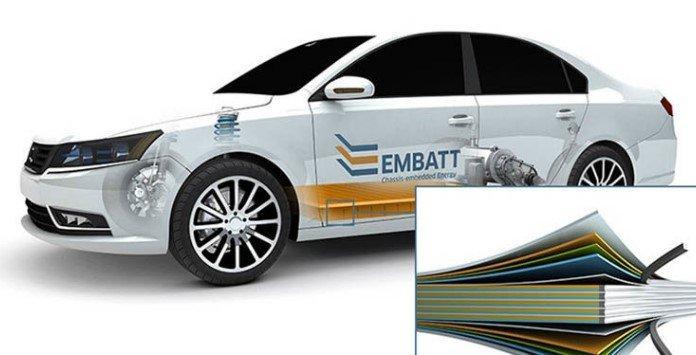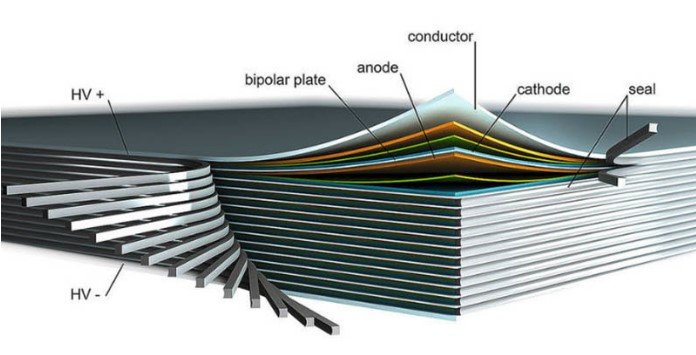AUTONEWS
 New bipolar batteries allow autonomy of 1000 km
New bipolar batteries allow autonomy of 1000 km
The technological evolution of the batteries is incredible and unstoppable, the new bipolar batteries can allow an autonomy over 1000 km. Is it the prelude to the industrial revolution?
But not everything is positive in this story, because while electric cars are one of the great solutions to global warming, their batteries are a big headache. This headache originates in the weight, durability, autonomy and disposal of the batteries.
The batteries are very heavy, and if their weight were reduced, the cars would gain in performance. Batteries can be a problem for the environment for a few years, and become toxic at the time of disposal.
Regarding the autonomy, this is one of the great problems of electric cars, since at the same time that the electric recharge stations are scarce, the autonomy of the batteries, which are like the fuel tanks of the electric cars, are much less able than the autonomy of traditional cars. Bipolar batteries with autonomy of up to 1000 km
However, new bipolar batteries are being developed, allowing an autonomy that can reach 1000 km, better than most gasoline or diesel cars.
This solves the problem of competitiveness and allows a new framework for consumers. Recalling that as there are fewer electric stations in relation to those of fossil fuels, a great autonomy like this can be decisive in the purchase of a car of this model on the part of the consumer. Here you will know the details of these new batteries.
With the aim of developing batteries for electric cars with greater autonomy, the German Ministry of Economic Affairs and Energy created the EMBATT-goes-FAB project, which includes four German companies and institutions: Daimler, Thyssenkrupp System Engineering, IAV and the Fraunhofer Institute for Ceramic Technologies and Systems.

Internal structure of the battery created by the Fraunhofer Institute.
According to the representatives of the consortium, if the energy cells developed by the project are implemented in batteries of electric cars, it is possible to achieve a range of 1000 km per load, surpassing the great majority of non-electric models.
The next step is to put these cells in batteries on an industrial scale, through surveys that allow device integration and manufacturing to scale. Bipolar lithium batteries are made of electrodes connected together.
This way you can make bigger batteries and charge more energy per charge. To better visualize, it is as if the old batteries were sheets printed on only one side, which wastes a lot of paper, while this new technology could be like sheets printed on the front and back, halving the amount of paper needed, or folding the paper. contents of the book.
The completion of the EMBATT-goes-FAB project is expected to take another two years. The Frahunhofer Institute will be responsible for producing even more evolved bipolar electrodes made of lithium, magnesium, graphite, cobalt and nickel for storage.
The institute's researchers are testing a prototype in ceramic-coated metal alloy format, making each side a cathode function and another anode function.
Finally, the IAV will develop the motor system connected to the battery, the Daimler group will take care of the technology of the car to adapt the new batteries, and Thyssenkrupp System Engineering has the function of making the size of the battery is 1000 x 30 cm2 . Now it's hoping that this battery gets to market at a good price.

Nenhum comentário:
Postar um comentário